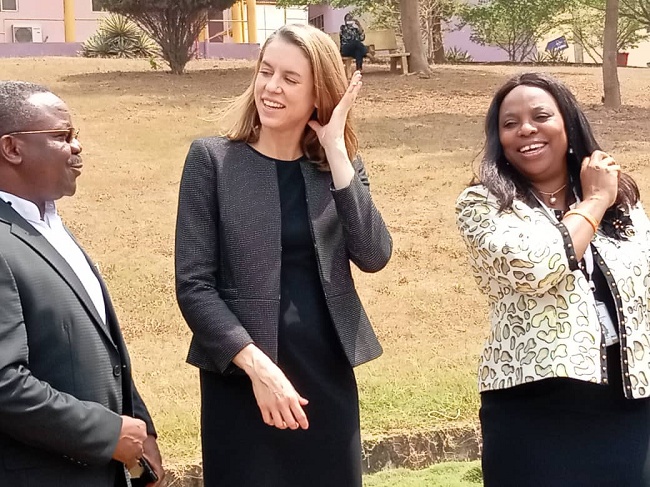The United States Mission in Nigeria has pledged to collaborate with the Chrisland University, Abeokuta, on capacity building for students towards self-discovery.
This was disclosed by the Deputy Head, Public Affairs Office of the U.S Consulate General, Lagos, Mrs Jennifer Foltz, during a “meet and interact” visit to the institution, last Thursday, that the Mission is poised to support the Nigerian youths in achieving their dreams through mentoring.
Folzt urged the students to take advantage of different exchange programmes provided by the Mission to develop themselves, especially entrepreneurship development which she described as key to Nigeria’s national development.
She highlighted that the U.S Consulate in Nigeria operates in different areas such as the provision of health and education services; job expansion in the rural sector; supporting improvements in agricultural productivity and increasing supplies of clean energy in Nigeria, to reinforce local and national systems in building institutional capacity.
Folzt enjoined Nigerian youths to avail themselves of the various job opportunities as contained on the website of the organisation, submitting that the U.S Mission Nigeria is committed to help youths actualise their dreams by imparting them on social entrepreneurship and employing technologies to drive economy.
ALSO READ FROM NIGERIAN TRIBUNE
- (BREAKING): NDLEA Declares DCP Abba Kyari Wanted Over Alleged Involvement In Drug Deal
- Igboho Files $1 Million Suit Against Benin Republic For Unlawful Detention, Violation Of Rights
The U.S Mission Nigeria donated books to the library of the institution.
The university Vice-Chancellor, Mrs Chinedum Peace Babalola, pointed out that the visit of the U.S Consulate to the school, would boost strategic alliances of the Institution with U.S consulate, strengthened the existing relationship between the two countries, and continuous harmony, exchange of students, and knowledge sharing.
She hinted that the institution is planning to establish a world-class Chrisland Institute for Security, Development, and Diplomacy (CISDD).
“We expect this Institute to provide knowledge in a wide number of areas, including curbing violent extremism, anti-terrorism, humanitarian affairs, etc., in order to foster development. Should knowledge would involve certificate courses for practitioners as well as graduate and post-graduate programmes, including research activities. We believe the United States can assist us materially towards the realization of the CISDD.
“We sincerely desire avenues for continuous interaction between our students and their US counterparts. Your guidance on how to set about fruitful arrangements in this regard would be much appreciated,” she added.






